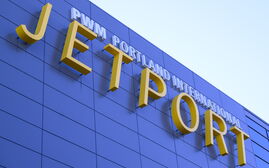
Processing Your Payment
Please do not leave this page until complete. This can take a few moments.
- News
-
Editions
-
- Lists
-
Viewpoints
-
Our Events
-
Event Info
- Women's Leadership Forum 2025
- On the Road with Mainebiz in Bethel
- Health Care Forum 2025
- On The Road with Mainebiz in Greenville
- On The Road with Mainebiz in Waterville
- Small Business Forum 2025
- Outstanding Women in Business Reception 2025
- On The Road with Mainebiz in Bath
- 60 Ideas in 60 Minutes Portland 2025
- 40 Under 40 Awards Reception 2025
- On The Road with Mainebiz in Lewiston / Auburn
- 60 Ideas in 60 Minutes Bangor 2025
Award Honorees
- 2025 Business Leaders of the Year
- 2024 Women to Watch Honorees
- 2024 Business Leaders of the Year
- 2023 NextUp: 40 Under 40 Honorees
- 2023 Women to Watch Honorees
- 2023 Business Leaders of the Year
- 2022 NextUp: 40 Under 40 Honorees
- 2022 Women to Watch Honorees
- 2022 Business Leaders of the Year
-
-
Calendar
-
Biz Marketplace
- News
-
Editions
View Digital Editions
Biweekly Issues
- April 21, 2025 Edition
- April 7, 2025
- March 24, 2025
- March 10, 2025
- Feb. 24, 2025
- Feb. 10, 2025
- + More
Special Editions
- Lists
- Viewpoints
-
Our Events
Event Info
- View all Events
- Women's Leadership Forum 2025
- On the Road with Mainebiz in Bethel
- Health Care Forum 2025
- On The Road with Mainebiz in Greenville
- On The Road with Mainebiz in Waterville
- + More
Award Honorees
- 2025 Business Leaders of the Year
- 2024 Women to Watch Honorees
- 2024 Business Leaders of the Year
- 2023 NextUp: 40 Under 40 Honorees
- 2023 Women to Watch Honorees
- 2023 Business Leaders of the Year
- + More
- 2022 NextUp: 40 Under 40 Honorees
- 2022 Women to Watch Honorees
- 2022 Business Leaders of the Year
- Nomination Forms
- Calendar
- Biz Marketplace
Maine small-biz funding roundup: more loans, fintech and options for self-employed
 Photo / Renee Cordes
The crisis has forced retail establishments statewide to close, including on Congress St. in downtown Portland.
Photo / Renee Cordes
The crisis has forced retail establishments statewide to close, including on Congress St. in downtown Portland.
Businesses that missed out on the first round of the federal Paycheck Protection Program could try again after the Senate on Tuesday voted to inject another $320 billion into the loan forgiveness program.
Due to get a green light from the House of Representatives this week and go to President Donald Trump's desk, the measure is part of a $484 billion bill that would also bolster the Small Business Administration's disaster loan and grant programs.
Before the initial Paycheck Protection Program expired, 15,000 Maine businesses had received a total of $1.9 billion in forgivable loans.
With round two about to start, lenders are preparing for another wave of applications.
"We stand ready to work with existing and prospective clients through our internal and external financing programs which include special options through the SBA, the Finance Authority of Maine and similar partners," Neil Kiely, president and CEO of Lewiston-based Androscoggin Bank, told Mainebiz before the Senate vote.
"We also are working with clients on hardship deferrals caused by the pandemic and where appropriate, providing short term financing to help clients maintain liquidity during the crisis. Despite the significant strain, our bank continues to offer the levels of customer service our clients have come to expect," he added.
'Fintech-powered human'

Lendio, a digital lending platform for small businesses, is also encouraging small business owners in Maine to file applications online.
"The only applications we are taking for funding right now are PPP applications," said Donovan White, Lendio's Biddeford-based franchise owner.
He noted that while many banks have already reached limits on submitting applications for the Paycheck Protection Program or have internal rules preventing them from accepting applications, there are no such limitations on Lendio.
He also underscored that the financial technology behind Lendio's application enables pre-screening for all required documents and helps avoid common errors.
During the first round, White said, 70,000 Lendio applications were funded. Unfortunately, they included none from New England, which Donovan said was due to operational deficiencies that resulted from processing so many applications.
He's confident that round two will go better, and welcomes queries from prospective borrowers. He also said he hopes that SBA 7A startup funding begins again shortly.
"I'm always happy to review one-on-one with any startup what their goals are and what possible funding options there are as part of a fintech-powered local human," he added.
From pet loans to pandemic relief
Elsewhere on the funding front, Town & Country Federal Credit Union — the Scarborough-based credit union that introduced pet loans last year — has launched a low-interest loan product to help those affected by the pandemic.
The Crisis Assistance Relief Loan, as it is formally known, is up to $10,000 for 36 months at special rate of 2.99% and 90-day no payment terms.
David Libby, the credit union's president and CEO, noted that although his institution does not do small-business lending and therefore cannot participate in the PPP or other SBA programs, it can offer various personal loan and assistance options for individual borrowers.
“The best thing someone can do is to reach out to their financial institution and discuss what the challenges are," he said. "Whether it’s loan payment deferrals, special lending options, or short-term line of credit increases for credit cards, I would encourage people to have a one-on-one conversation their financial institution as an important first step. It isn’t and shouldn’t be a one-size-fits-all approach because everyone’s needs are different."
He added that "it's important for people to understand that financial institutions want to help, and we will do everything we can to provide assistance for the short- and long-term."
Other options for self-employed business owners
And what about self-employed business owners who may not qualify for PPP or other funding?
Chris Linder, CEO of MaineStream Finance in Bangor, says "it's not all bleak" and says there are other options, many of which are listed on his organization's website.
But he warns: "Do be careful. These are moving targets, funds run out fast and scammers lurk. We at MaineStream and partners like SBDC and SCORE are here to guide you. There are also SBA 'microlenders' like us at MaineStream or Coastal Enterprises and Community Concepts who may provide emergency loans, but be careful of loans!"
For small businesses of all types, he recommends Hello Alice, Red Backpack, Salesforce, the U.S. Chamber of Commerce and Verizon's Small Business Recovery Fund.
For self-employed individuals, he suggests Leveler, the One Fair Wage Emergency Fund and the Freelancers Relief Fund.
Industry-specific options for restaurants include the James Beard Foundation, the National Restaurant Association and Restaurant Strong.
He also suggested low-cost online lenders such as Honeycomb, KIVA, Mainvest, Paypal and Wefunder.
And those who want to help small businesses, he recommends buying gift cards through Kabbage, Square and Facebook.













0 Comments